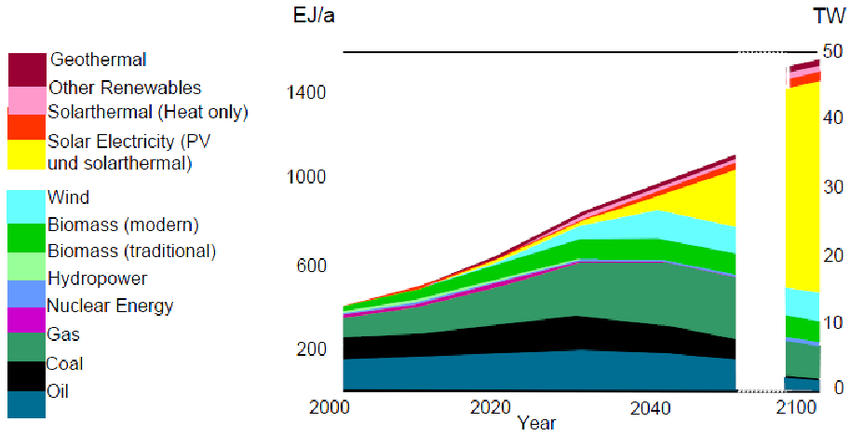What is truly sustainable energy?

One of the many future “energy mix” projections
We’ve just recently wrapped up our California Offshore Wind comments for Morro Bay and Humboldt. While early on I filed systematic comments on offshore wind to the California Energy Commission on behalf of OCR, the more recent comments were all part of a collaborative process – allowing us to cover a lot of bases in our comprehensive critiques and recommendations, And given the breadth of the organizations and the collective skills of the collaborators, our comments and critiques will provide some useful and thorough guidelines for the regulatory agencies to follow.
But it is not lost on me that the areas we’ve been considering are being developed by fossil fuel companies. Interested bidders for the Morro Bay call area include Shell and BP, and Equinor (née “StatOil”) is pitching Empire Wind in the New York Bight. From an equipment and operational standpoint this makes sense, as these companies have been industrializing the ocean for a hundred years. They have also locked down the “centralized power distribution” model.
But from a philosophical standpoint I find it troubling. These oilmen have been operating under the notion that economic health is stapled to energy use. And given that our capitalistic success-metric demands continuous economic growth, the assumption is that our economy will need ever-increasing sources of energy. But the only thing in nature that grows continuously is cancer.
That Toyota is planning the release of a hybrid “Tundra” in 2022 pretty much says it all.
Nowhere in these conversations about “sustainable energy” does the phrase “conservation” ever seem to come up. Looking at any of the searchable projections of energy-use has “renewables” taking up an increasingly larger share of the mix, but the top line of all of these projections continues to rise.
Maybe I’m thinking too much like an engineer here, but it takes 20% of the energy to move someone across the country in high-speed rail as it does in an airplane. And given that developing technologies are bringing high-speed rail into time/distance parity with airplanes, would it make sense to bring them into our national infrastructure discussions?
And if everyone had solar panels on our roof tops and batteries in our garage, we would know exactly when we were net consumers or net contributors of energy to the grid. This would be the clearest way to get folks to consume less, knowing that if they “over generate” they will make money, and if they over consume, they will lose money. This is capitalism at its best.


Great comments. I have just finished Stan Cox’s book about the green new deal, (which in no way makes me an expert though.) The book talks about the danger of renewable energy just adding to the energy budget if we don’t actively reduce fossil fuel use and about the need for de growth to reduce greenhouse gas emissions. As an aside people over here in Aus. have advocated for fast rail for years and its not gone anywhere, no doubt politicians doing the bidding of supporters.